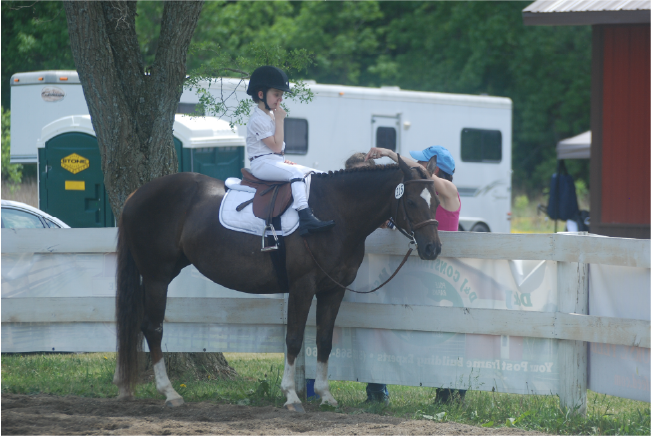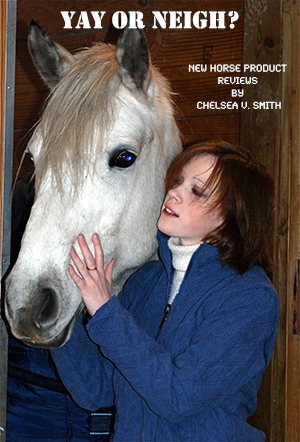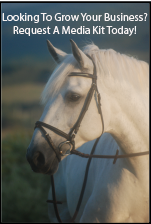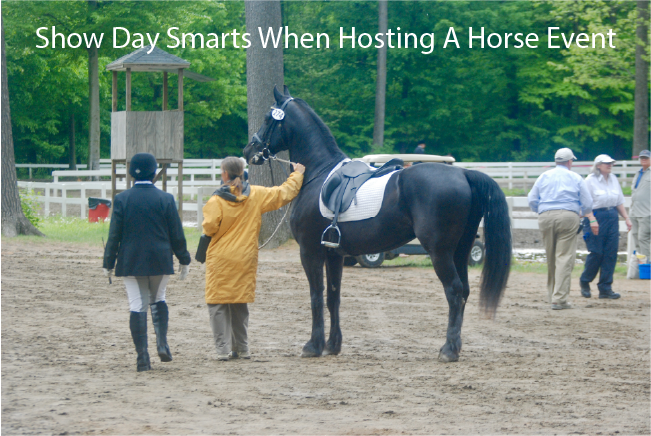Show Day Smarts When Hosting A Horse Event
By Nikki Alvin-Smith
The excitement of hosting an equestrian event such as a clinic or horse show comes with a myriad of organizational tasks. Major effort is required to prepare for even a one-day event, and securing the participants together with their registration paperwork is only the beginning of a quest that can unsettle even the most stalwart of horse folks.
The key to success hosting an event is in diligent planning. While the best laid plans can go awry, having a Plan B, and a team of volunteers or staff on hand that can quickly step in an execute necessary adjustments as needed, is a smart way to set up the show for success.
Here are some tips to help less experienced event organizers navigate the show day.
Divide and Conquer
The day-to-day business on the horse farm still needs to go forward without interruption or upset on show day, and with some forethought on how the horse farm is developed the ‘divide and conquer’ approach is a great plan of attack.
Stabling for show horses should be kept as separate from the regular resident equines as is practical to minimize stress to the horses caused by the noise and commotion that incoming animals and their caregivers will create. If there is an option to have dual stabling areas then this is ideal. While building a dual barn horse facility can be superb way to increase a dual revenue stream on a horse farm this is not an option for everyone. Consider the option of renting temporary stabling and placing it in an indoor arena, or renting tented stall space as a great means to keep the incoming horses separate from resident equines.
Other options to ‘divide and conquer’ the two sets of horses is to keep the ‘home horses’ turned out at a distance from the active event location in pastures further from the ‘action’, or stable as many horses as possible to one end of a long row of stables leaving a stall empty as a gap between the visiting horses and the resident ones.
Allowing event participants to show out of their trailers and simply ‘haul-in’ for the duration of the day is another option. But bear in mind all trailer parking and trailer-in areas on site should be contained in a fenced area. Use of a grazing paddock for a parking area will require careful clean up and pick-up afterward and cross-contamination through grazing can occur between animals visiting and those later grazed on the land. Similarly beware of leaking vehicle fluids such as coolants, oils or other ‘spillage’, which can be toxic to horses.
“Set fair” the stabling for the visiting horses to avoid delays on arrival so that horses are able to be settled straight off their transport without a lot of fuss. A prepayment for 1st stall prep is commonly charged in the show stabling application.
Entrances to all horse areas on the grounds should all have a funnel system, so that coming and goings can be monitored. For example, warm up areas and rings, turnout spaces if provided, on-site stabling.
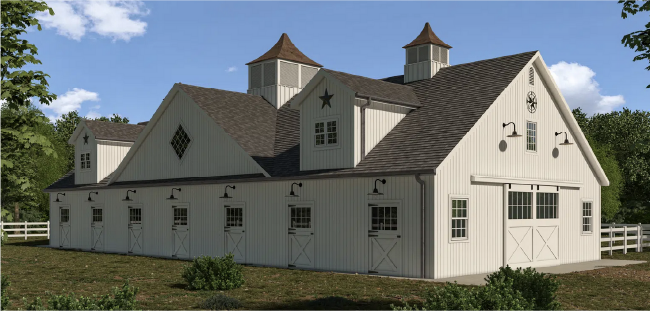
If the main barn is not to be used for visitors then posting someone to monitor it to deny access to outsiders is a good idea. Failing that lock or close the doors that face the event and rope off the area and post, ‘No Access’, signage.
Set all supplies such as hay and bedding nearby to the guest stabling to save fetching and carrying but secure them from poaching.
Parking options that separate horse transport vehicles from cars and the general public is a good idea. This will alleviate the chance that visitors themselves or their vehicles will be damaged by horses being unloaded/loaded, or being an annoyance by parking in the space needed to maneuver large equipment, or blocking horse trailers in.
Set some portable bathroom facilities close to the stabling area. If possible place portable toilets in multiple locations. Logically en route to the show ring area and by the Show Office are good spots. A separate portable bathroom for use solely by the judges and officials close to the ring but not within obvious line of sight of spectators ringside or of the ring is always appreciated.
Set aside specific use areas within the stabling for grooming and bathing spaces and have plenty or water provision handy throughout the stall areas.
Access to electricity in the stabling areas should also be a consideration. As competitors may need to utilize it for veterinary visits or daily care routines. If extension cords are used make sure they are properly rated and protected from a horse’s reach, horse hoof traffic or from folks tripping over them.
Signage Is Your Friend
While you want everyone to feel welcome when they arrive and enjoy the event you don’t want to invite people to take matters into their own hands when it comes to where to park, where to wander, or where to walk their dogs (if you allow dogs at all do require they be leashed at all times).
Allocate areas for each duty and sign them clearly so folks know where they are expected to go and what areas are off limits.
The Show Office should be placed in a logical spot where access is easy for arriving visitors and for daily use during the competition. A ‘sign in’ office can always be placed at the gateway separate to the main Show Office which should be closer to the proceedings of the event.
Signage for food services such as food trucks, areas of shade with pop-up tents duly secured, location of toilet facilities, and first aid care should be conspicuously posted.
Don’t forget to include plenty of seating options throughout the property. Hopefully a horse safe variety that won’t simply blow away, and placed in the shade where possible if it is the summer season.
Identify The Staff and Players
Signage should extend to clear identification of the staff on hand at the event. Offering VIP passes for press and officials, high visibility jackets or T-Shirts labelled for event staff, logo embroidered baseball hats for volunteers etc. It is a good opportunity to spread the event logo and promote the farm or event brand.
Can You Hear Me Now?
Hiring a professional announcer for a show can make all the difference to the feel and most importantly, smooth running of an event. Announcers are not as expensive to hire for a day as you might think, and their services can be invaluable to do more than keep things on track. They can bring humor that keeps guests and competitors entertained; add a professional status to the event; provide an experienced eye to the proceedings that politely informs show management of ongoing issues on site (given you place their box high enough to provide a good visual over the property).
Audio set up should be tested well before the event to ensure it offers clear communication in the key areas of stabling as well as the competition arenas and warm up areas.
Professional video and photography services should be available to the competitors (sanctioned FEI events now have legal limits as to what videos even horse owners and competitors can distribute and where) and the show organizers can benefit greatly from employing such a professional on site. A usual barter system between what will be provided cost wise to the event for promotion later as well as what fees will be charged for services rendered should be agreed beforehand.
A Press Room is not usually needed at a small event but contacting and inviting local press to attend is always a good idea and they should be treated as an ‘official’ at the event in a VIP manner.
Treat The Officials
Judges and Technical Delegates, Show Veterinarians and other ‘officials’ at the event should all be diligently catered to before, throughout, and after the event.
Bathroom breaks for judges and scribes, ring staff, are essential. Provision of heat/cooling options such as fans or heaters in judges boxes, a communication device or ‘com’ system, such as walkie-talkie direct to the key show management personnel is essential.
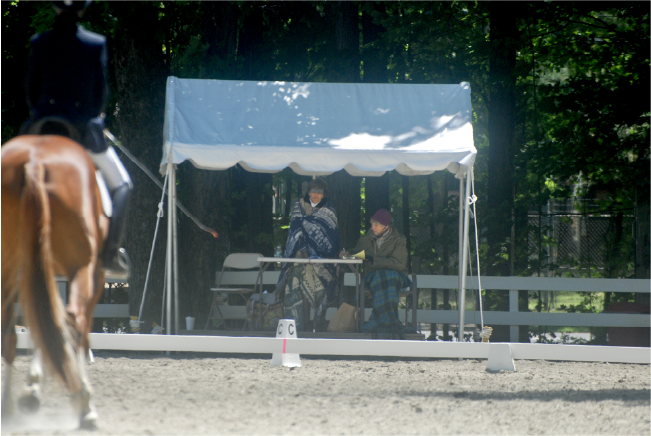
Provision of a separate space for officials to gather to eat meals is needed to allow them to enjoy some downtime in peace and quiet, away from the competitors and visitors. Transport to and from airports and hotels should be offered and provided in a timely manner. Wellness checks on officials for beverage or snack needs should be frequent throughout the competition. Seating should be comfortable with all supplies (back up chargers and tablets/electronics if used, pen/paper option backups etc.) at hand to save back and forth requests all day long.
Plan For Accidents
Aside from securing all necessary insurances to host the event, both for liability coverage and property damage, it is of paramount importance that you have on hand some form of emergency first aid for both horses and humans.
Your local Fire Dept. or E.M.S. may be able to help you secure relevant personnel for a donation to the Fire Department or organization. Even if an ambulatory unit is not required to be on site by law, giving a ‘heads up’ notice to both services such as ambulance, fire and police is a good idea.
A licensed veterinarian may not be required to be on site for the duration of an event, but as host the ‘on call’ emergency services of a local vet should be set up in advance and be noted in all the competitor packages. It is also a good idea to identify and set up an ‘on call’ farrier available should a need arise.
Manage Vendor Expectations
To garner interest from vendors in participating at your event it is important to help them along as much as possible by carefully placing their stands in high foot traffic areas. Offering special events within a vendor area during quiet periods e.g. lunch break time and early evening, can boost the presence of prospective buyers of the vendor’s wares during the event.
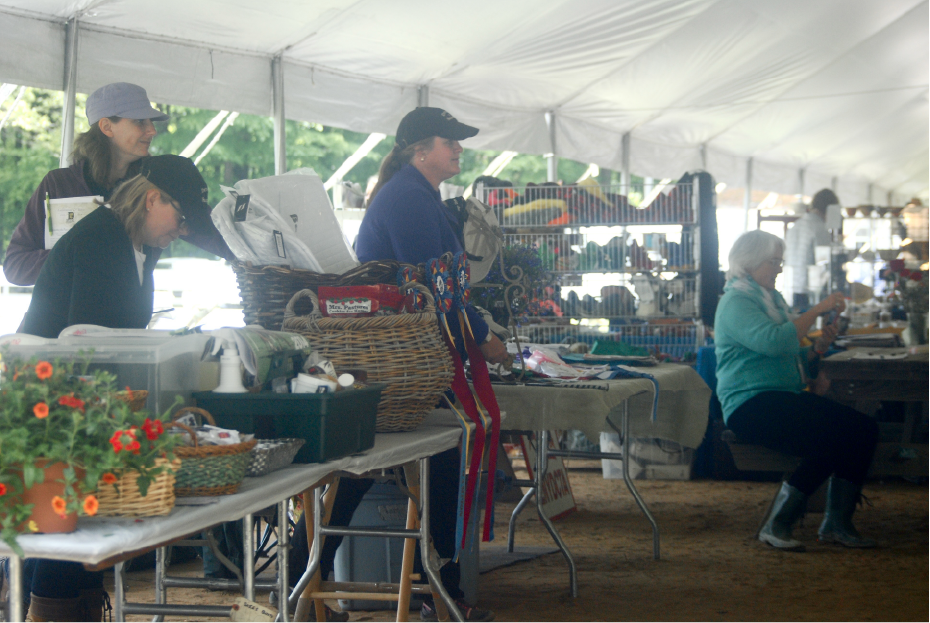
Such events may include drawing raffle tickets that have been distributed among competitors in their show packages or sold at the gate. Hosting an evening ‘wrap up’ party for the competitors can be a good way to bring people to the vendor area.
Include a regular mention of the various vendor offerings throughout the day on the P.A. system.
Weather Preparations
Muddy tracks or flooding caused by a deluge of rain, dust clouds produced by the hot summer sun and high winds that cause loud flapping sounds of tents and flags and that can cause damage to improperly secured tents, temporary stabling or vendor stalls must all be ‘nailed down’ with due preparation.
High traffic areas may warrant laying down a track of aggregate to mitigate the risk of vehicles becoming stuck in mud or visitors and horse/riders having trouble navigating the route to the competition areas.
Have a large piece of equipment such as a farm tractor at hand to step in should it be needed to pull a horse rig out of the mud.
Water trucks can be rented out from a pool water supplier to douse the competition and warm up arenas if needed. Or a pull-behind water unit on a UTV or tractor can work well if large enough to do the job.
Security 24/7
Throughout the event it is a good idea to implement some form of security protocol.
This may include video monitoring (notification of its presence with signage is required in most States if footage may be used as evidence in a court of law), an experienced professional horse person on site 24/7 until all visitors both horse and human have left the property and/or employment of a professional security monitoring service.
Night checks of stabling areas and site should be conducted by event management to help ensure the health, well-being and security of animals left in their care/custody and control. Security lighting for the venue should be implemented.
If overnight stays are allowed on site, either as tent camping or RV hook ups etc., it is important activities of the visitors are monitored. All traffic on/off the property during the event should be surveilled particularly trailers and horse transport units.
Enjoy It
Author’s Note: Hosting a horse event is a big undertaking. I have managed many different styles of events including many equestrian-based ones during my career, including clinics with international level clinicians and hosting visiting foreign dignitaries and celebrities.
The enterprise can be a daunting one to undertake but if you surround yourself with a well-organized team and are decent at coordinating people and providing leadership, hosting can be very rewarding. When problems arise, stay calm. Listen to complaints or issues carefully and with sincere care, attention and empathy. Then act appropriately to resolve them in a timely manner. Feedback from attendees can be invaluable in pointing out shortcomings in the event organization and help direct attention where it is needed to offer an improved experience for all parties next time.
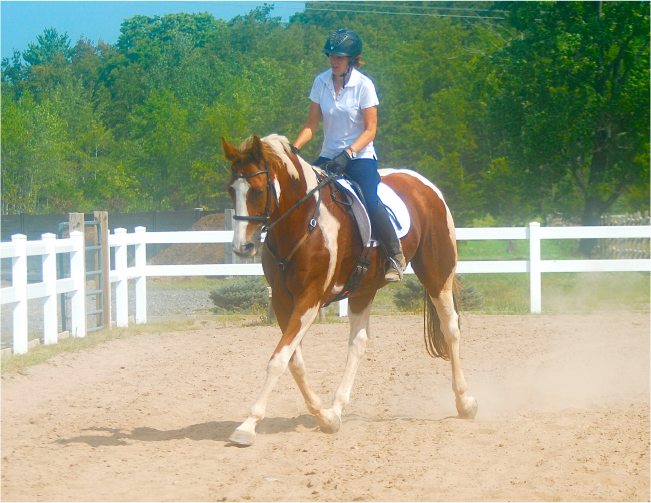
Most horse events begin as small-scale offerings, perhaps a one-day clinic or an Open House. These are great opportunities to get your feet wet. Timekeeping is perhaps one of the most difficult things to manage where horses are involved, and keeping a show or clinic running on time and on point requires a deft hand. Whatever rules you implement, enforce them. For example, if the rule is no dogs unleashed, make sure no one starts abusing the rule.
Clear communication, positive management style and an ability to set doable tasks for each individual based on an individual’s skill set and experience all blend together to make the perfect recipe for a great event experience. Always reward your volunteers and staff by providing a constructive, kind environment, not overworking them, and by ‘having their back,’ understanding that sometimes things go awry and are beyond anyone’s control.
As one of my favorite mentors Richard Branson says, “One thing is certain in business. You and everyone around you will make mistakes.”
It truly is not what happens it is how you deal with it.
This article is provided courtesy of the leading modular horse barn company, Horizon Structures LLC. Based in Atglen, PA, with a nationwide footprint, Horizon Structures offers more than horse barns, with an extensive array of residential and commercial kennels, chicken coops, and more.
